Blog
Natural Herbal Remedies for Hair Loss: A Comprehensive Guide
Hair loss can be distressing, affecting both confidence and quality of life. Although many factors contribute to hair loss—from genetics and hormonal imbalances to stress and nutritional deficiencies—certain herbs have long been used to support hair health. Recent research suggests that some of these herbal remedies may help stimulate hair growth, improve scalp circulation, and counteract the factors that lead to hair thinning. Below are some herbs that show potential in addressing hair loss, along with key benefits and supporting research evidence.
2/27/20254 min read
1. Rosemary (Rosmarinus officinalis)
Benefits:
Rosemary is known to improve blood circulation to the scalp and may stimulate hair follicles. Its antioxidant properties help combat free radicals that can damage hair cells.
Research Evidence:
Research comparing rosemary oil with minoxidil found that rosemary oil may promote hair growth in individuals with androgenetic alopecia.
(1)
2. Ginseng (Panax ginseng)
Benefits:
Ginseng is reputed to enhance hair growth by stimulating blood flow to the scalp and promoting cell proliferation in hair follicles.
Research Evidence:
Preclinical studies have shown that ginseng can promote hair growth and improve hair follicle health. (2)
3. Nettle (Urtica dioica)
Benefits:
Nettle is rich in vitamins and minerals that support hair health. It also contains compounds that may help block the conversion of testosterone to DHT, thereby reducing hair loss.
Research Evidence:
Studies have indicated that nettle extract may have beneficial effects on hair growth by modulating hormonal activity. (3)
4. Aloe Vera (Aloe barbadensis)
Benefits:
Aloe vera is well known for its soothing and moisturizing properties. When applied to the scalp, it can reduce inflammation and create a healthy environment for hair growth.
Research Evidence:
Research has shown that aloe vera can improve scalp health and may help promote hair regrowth in conditions where inflammation is a factor.
(4)
5. Fenugreek (Trigonella foenum-graecum)
Benefits:
Fenugreek seeds are high in protein and nicotinic acid, both of which are essential for hair growth. They may also help reduce hair loss by strengthening hair follicles.
Research Evidence:
Clinical studies have demonstrated that fenugreek supplementation is associated with improvements in hair density and reduced hair shedding.
(5)
6. Green Tea (Camellia sinensis)
Benefits:
Green tea is rich in antioxidants (catechins) that may help reduce inflammation and oxidative stress on the scalp, promoting a healthier environment for hair growth.
Research Evidence:
Studies have suggested that green tea extract can inhibit the effects of DHT on hair follicles, potentially reducing hair loss. (6)
7. Peppermint (Mentha piperita)
Benefits:
Peppermint oil can stimulate blood flow to the scalp and has a cooling effect that may soothe irritation. This increased circulation can help deliver essential nutrients to hair follicles.
Research Evidence:
Animal studies have demonstrated that peppermint oil can promote hair growth by enhancing blood flow to the scalp. (7)
8. Onion (Allium cepa)
Benefits:
Onion juice is a traditional remedy for hair loss, rich in sulfur which is thought to boost collagen production and support healthy hair growth. It also exhibits antibacterial properties that may improve scalp health.
Research Evidence:
Clinical trials have shown that topical application of onion juice can significantly improve hair regrowth in individuals with alopecia areata.
(8)
9. Bhringraj (Eclipta alba)
Benefits:
Bhringraj, also known as the “king of herbs” for hair, is used in Ayurveda to promote hair growth and prevent premature graying. It is believed to improve scalp circulation and strengthen hair follicles.
Research Evidence:
Preliminary studies indicate that extracts of Bhringraj can stimulate hair growth and improve hair quality, although more clinical research is needed. (9)
10. Amla (Emblica officinalis)
Benefits:
Amla, or Indian gooseberry, is a powerhouse of vitamin C and antioxidants. It helps reduce oxidative stress on hair follicles, promotes collagen production, and nourishes the scalp—fostering an environment conducive to hair growth.
Research Evidence:
A study has shown that Amla supplementation can improve hair density and overall hair health. (10)
11. Brahmi (Bacopa monnieri)
Benefits:
Brahmi is well known for its cognitive and stress-reducing benefits. It also promotes blood circulation to the scalp, which may stimulate hair follicles and encourage hair growth.
Research Evidence:
Preliminary research suggests that Brahmi extract may enhance microcirculation and support hair growth. (11)
12. Shikakai (Acacia concinna)
Benefits:
Shikakai is a traditional natural cleanser and hair tonic. It gently cleanses the scalp without stripping natural oils while strengthening hair roots and promoting natural shine.
Research Evidence:
Studies have highlighted the cleansing and hair-strengthening properties of Shikakai, supporting its traditional use for healthier hair. (12)
13. Hibiscus (Hibiscus rosa-sinensis)
Benefits:
Hibiscus is rich in vitamins and amino acids that nourish hair. It helps in strengthening hair follicles, reducing breakage, and maintaining moisture levels, which can be crucial for hair regrowth.
Research Evidence:
Research indicates that hibiscus extracts can promote hair growth and improve hair strength. (13)
14. Neem (Azadirachta indica)
Benefits:
Neem is widely known for its antibacterial and antifungal properties. It helps maintain scalp health by reducing dandruff and inflammation, thus providing a healthier environment for hair growth.
Research Evidence:
Studies have shown that neem extract can significantly improve scalp conditions, which may indirectly support hair growth. (14)
15. Jatamansi (Nardostachys jatamansi)
Benefits:
Jatamansi is an Ayurvedic herb that is traditionally used to promote hair growth and reduce premature graying. It helps improve scalp circulation and provides a calming effect that may reduce stress-induced hair loss.
Research Evidence:
Experimental research suggests that Jatamansi extract can stimulate hair growth and improve overall hair quality. (15)
16. Tulsi (Ocimum sanctum)
Benefits:
Also known as Holy Basil, Tulsi is celebrated for its adaptogenic and antioxidant properties. It supports overall scalp health by reducing inflammation and oxidative stress, which can impair hair growth.
Research Evidence:
Clinical investigations have indicated that Tulsi can enhance scalp circulation and reduce oxidative damage, thereby supporting hair health.
(16)
17. Burdock Root (Arctium lappa)
Benefits:
Burdock root is rich in phytochemicals and has anti-inflammatory properties. It is traditionally used to purify the blood and improve circulation, which can help in delivering essential nutrients to hair follicles.
Research Evidence:
Research has demonstrated that burdock root extract may support healthy hair growth by reducing inflammation and promoting blood flow.
(17)
18. Licorice (Glycyrrhiza glabra)
Benefits:
Licorice root helps soothe scalp inflammation and can improve circulation. Its anti-inflammatory and antibacterial properties also contribute to a healthier scalp environment, reducing hair loss associated with scalp conditions.
Research Evidence:
Studies have shown that licorice extract may aid in alleviating scalp inflammation and promoting hair health. (18)
19. Ginkgo Biloba
Benefits:
Ginkgo biloba is known for its ability to improve blood flow and circulation, including to the scalp. Enhanced circulation means that hair follicles receive more oxygen and nutrients, which can stimulate hair growth.
Research Evidence:
Clinical evidence suggests that Ginkgo biloba extract improves microcirculation and has antioxidant properties that support hair follicle health. (19)


Final Thoughts
Incorporating these 10 additional medicinal herbs—Amla, Brahmi, Shikakai, Hibiscus, Neem, Jatamansi, Tulsi, Burdock Root, Licorice, and Ginkgo biloba—into your hair care routine can provide complementary benefits for reducing hair loss and promoting stronger, healthier hair. Each herb works through unique mechanisms, from enhancing scalp circulation to providing antioxidant and anti-inflammatory support. For best results, consider integrating these natural remedies with proper nutrition, stress management, and, when necessary, conventional treatments.


